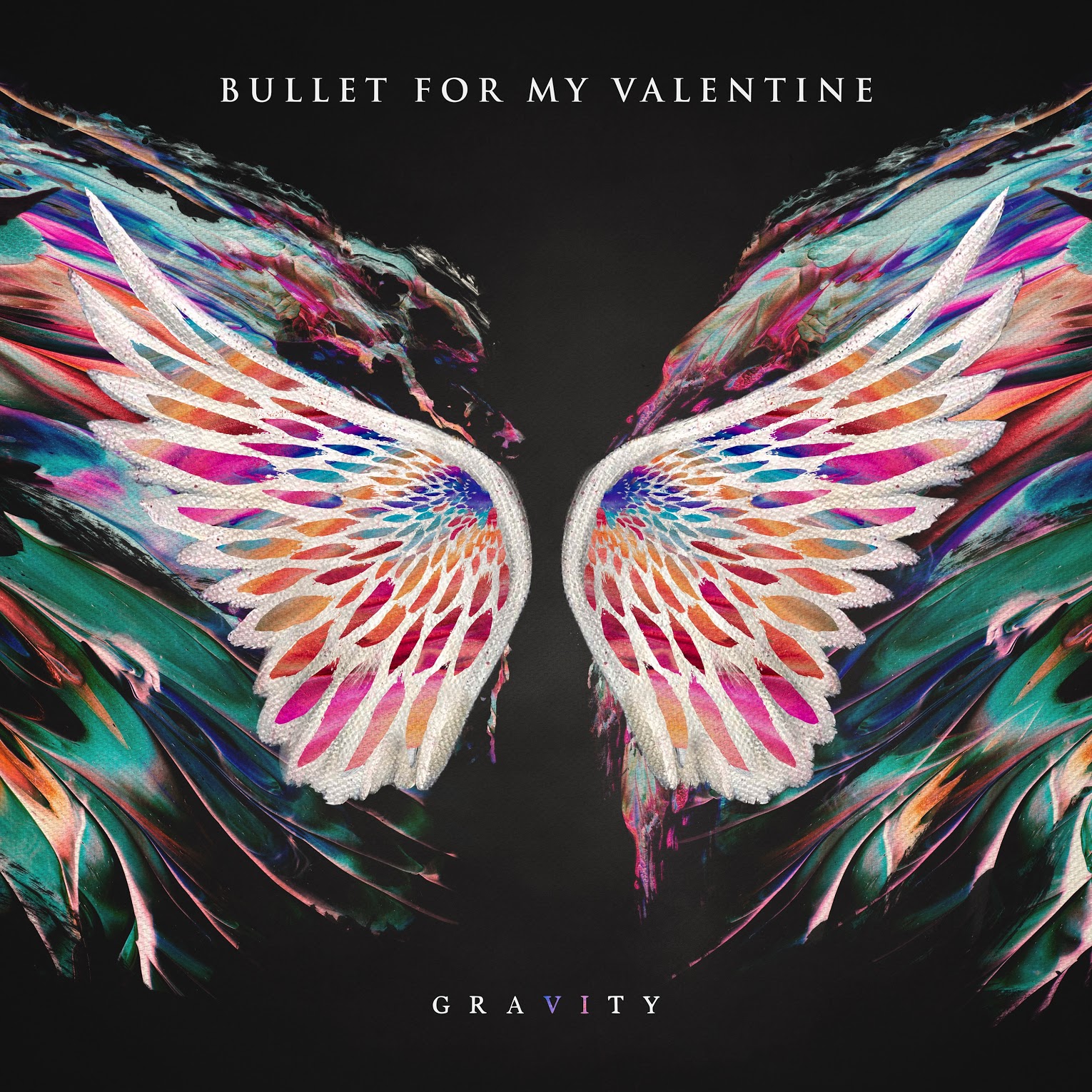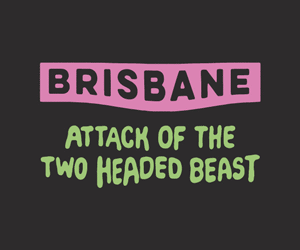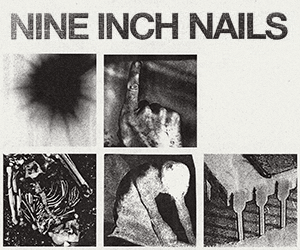As Flaming Wrekage’s brutal fourth album tickles your earholes, you know this is something special. …
Bring Me The Horizon, Enter Shikari and now, against all odds, Bullet For My Valentine: the legion of bands that made the jump from metalcore to pop is growing ever stronger, and the Welsh lads might’ve just pulled it off with the most grace of the lot.
MORE: HIGH TENSION: Shedding Their Skin // PANIC! AT THE DISCO: Wild & Wicked // CIRCLES: Release New Single & Announce Upcoming Album // ZEAL & ARDOR: In The Fiery Depths Of Hell // THE BENNIES: Chill Bill – Vol Fun // #REALTALK: Actually, Punk Is Doing Just Fine REVIEW: BULLET FOR MY VALENTINE: Gravity // HIGH TENSION: Purge
Gravity is a massively different beast for the Temper Temper crew. Where thundering breakdowns and guttural palm muting once stood in their path, the quartet’s road to success is now paved with chimey keys and twingy synthbass. Don’t get us wrong, though, this ain’t no sellout move. Hell, of the six albums they’ve doled us thus far, Gravity might just be their goddamn best! It’s an exciting step in a new direction for a band that was, admittedly, due for a bit of a shake-up. And alongside his band of misfits, frontman Matt Tuck has approached the new sound with the utmost authenticity—he’s got his head in the game, but he’s also got his heart and soul in there too.
So without further ado, let’s buckle in and blast off to the brave new world that Bullet For My Valentine have invited us to. To infinity, and beyond!
I know it can be a bit like choosing a favourite child, but how do you think Gravity stacks up against the rest of your discography?
It’s quite easy, actually—I would pick this one as my favourite for multiple reasons. It’s a far more personal and direct album, lyrically, and I think this is the best we’ve ever sounded. It’s not the most technical record by any stretch of the imagination, but y’know, the heaviness and the weight of it, and how posh and kind of modern it sounds, for me, is just exactly what we were trying to do right now. We were trying to step up our game in every department, and I think this album has done that massively for us.
How do you think the fans will respond to it? Is that something you care, or even think about when you’re writing a record?
Obviously, we would love nothing more than for our fanbase to fall in love with it as much as we have. That’s not really in our control, though, so it’s not something we can really think about, y’know? We just have to do what’s in our hearts—we’ve gotta write music that excites us, that makes us want to get on the road for two years and play it night after night—so yeah, we try not to think too much about that. As long as we’re happy—and we are super happy with this record—that’s all we can really think about.
After five albums, was there much of a conscious effort to go, “Okay guys, we really need to switch shit up here,” or do you think the new sound came as more of a natural evolution?
It was a bit of both, y’know? I think when we transitioned from Venom into Don’t Need You as a standalone track, and then into Gravity, people could naturally feel where the band has evolved musically. It was just more about being aware of that this time around, and seeing how far we could push it without going too far. And that’s kind of what we did, y’know—there’s still a lot of dark and heavy moments on this record, they’re just executed in a far simpler and more direct way. Y’know, we’ve kind of taken our foot off the gas on the technical forefront of the band, but we’ve made technical songs a million times in the past, so I don’t think trying to do that again would be beneficial to this band’s future.

Bullet For My Valentine // By Ville Juurikkala
One thing that I really like is that you’ve got this whole new flavour in the mix, but there’s still a lot of that classic sound you expect from a Bullet album. How did you find a balance between that signature Bullet heaviness and the more electronic and melody-focused sound?
We’ve always been a heavy band and I’ve always been a heavy metal guitarist—but I’ve also always been a fan of melody. Being a vocalist, I’ve tried to incorporate that into every bullet song we’ve ever done at some point. So it was just experimenting. It was a lot of writing songs and a lot of getting weird with electronic production techniques, taking things way too far just for fun. I felt like it was just time to get fun and entertaining, y’know? I’ve got a good ear—I know when things are stupid and wrong or when they’re not great, and sometimes you can police that, and sometimes you let it slip. But on this one, it was very much an important part of making this record a success to find that balance. And I think we’ve done that. It’s different enough that people’s ears will prick up, but it’s balanced enough that people could just fall in love with the tracks. Because I think after one or two listens to the songs, after that initial period of going, “Oh wow, this is different” is gone, what you’re left with is a fucking badass song that sounds like Bullet For My Valentine!
I have a great ear for melody and I know how I want a song to sound—I just don’t know how to make those sounds when it comes to [the studio process].
[MATT]
How much did this record push you out of your comfort zone as a songwriter?
It massively pushed us out of our comfort zones! We’ve always been a band that’s displayed our technical abilities—we’ve always harnessed that and championed it and put it at the forefront of our music, and to kind of not do that, y’know, it took a massive amount of effort and a lot of balls. It’s something that has worked countless times in the past, so to not do that formula again was a very difficult decision to make. But we felt like we pushed the technical aspect as far as we can on Venom—that’s a very technical and intricate kind of record, and we thought that if we tried to that again or push that even further, the identity of the band would just be lost. So we just thought, “Okay, well let’s strip it back. We’ll still write the best songs we can write, and if there’s moments for these parts to come up, let’s have them,” but it just so happened that the songs were coming out so strong and having so many different sounds that everything else took over that aspect of the band. Again, it took a lot of writing, a lot of experimenting, a lot of getting weird and a lot of having fun—which is something you don’t really get in the studio a lot because you’re always so stressed out—and then just kind of trusting your instincts and listening back to songs fairly. If they were badass, they were badass! If they were shit, they went in the bin.
You guys worked with Carl Brown in the producer’s chair for Gravity, which is an exciting change given the last three records were produced by Colin Richards. What made you guys want to bring Carl into the fold this time around?
We wanted to have a younger and fresher approach to our production. Carl is a lot younger than Colin, and Colin is very old-school—he’s great at what he does, but again, it was mainly wanting to let of that side of the band—our safety blanket as a producer—and wanting to work with someone that could take this band into the future and explore a sound that we never have before. I have a great ear for melody and I know how I want a song to sound—I just don’t know how to make those sounds when it comes to that side of things, y’know? So it was more just getting him onboard, telling him what I wanted to achieve and how I wanted it to sound. And he was the perfect man for the job–he’s very much onboard with everything we want to do with our sound; he’d always been a fan of the band so he didn’t take this opportunity lightly. He didn’t want to change the band, he just wanted to enhance it. And I think he did a fantastic job of that.
So how much did the recording process change with Carl at the helm, as opposed to how you worked with Colin?
It didn’t change at all. We wrote and recorded Venom with Colin and Carl as co-producers, so he kind of knew how we liked to work and it was just business as usual, really. We just got in the studio, did a bunch of writing and a bunch of demo sessions, went away, lived a bit, went back, did some re-writing, got into the proper studio last November and started putting it down for real. So it was a very easy process by the time we got to that November, because we had a lot of stuff written, we’d gone through the turmoil of the direction change and butting heads, and we’d figured out how we wanted to incorporate those electronic sounds and simplify things down; so by the time we got to the actual recording process, it was a very slick and quick process.
This is also your first record to feature Jason Bowld on the drums. How do you think his inclusion impacted the creation of this record?
It massively impacted the creation of the record! He was there as my partner in crime for the writing process – y’know, taking direction and instruction from me. It was a lot of fun to not have any boundaries or limitations when we were writing, and he was just incredibly excited to be a part of a Bullet record. It’s something that we’ve both always wanted, and we finally got this moment. We were like, “Wow, okay, this is for real, let’s not fuck this up!” So it was good. He’s just an incredible drummer, too. He brings a far more diverse dynamic than we’ve ever had before, and he just wanted to create something new. This was his first album with us, and having the direction change and this new way of writing, it was just the perfect timing for everything. So he brought energy, passion, creativity… He was just the whole package.
I had to take this band by the balls and go, “Let’s fucking do something different here! Let’s do something exciting!”
[MATT]
What is it about this version of Bullet that you’d say makes it the best lineup you’ve had to date?
I think this is the best lineup we’ve had in so many ways. Obviously no-one wants to see changes in bands; it’s always quite a demanding process for us all on a personal level. No-one wants to see that, but as this band has changed, it’s been progressing, and I think this is by far the strongest version of us there has ever been on a creative and performance level. From a fan’s perspective, those are probably the two most important things that they care about. So it’s good, y’know, we are quite a formidable band on stage now, and writing an album like this goes to show what we’re capable of when everyone’s pulling in the same direction.
Were you ever worried that maybe you weren’t going to get it over the line, or that trying to change the band in the way that you did could have broken Bullet?
No, I don’t think it would ever have broken Bullet. It was more just me taking that leadership role and being very direct and assertive that this was the right thing to do. And y’know, it was a difficult thing to do in practise – I could voice my ideas, but getting people onboard with them is another thing. I was never worried that I wasn’t going to get it over the line because I knew that I’d get my own way eventually – y’know, I always do [laughs] – but it was more just wanting them to be excited and not scared. I think that’s the biggest thing that was holding them back – the fear of the unknown. And I understand that because I was scared too, but I had to take this band by the balls and go, “Let’s fucking do something different here! Let’s do something exciting!” And it took a while, but we got there in the end… Thankfully.
Were you writing for this record as a full, collaborative unit, or would you all bring your own separate ideas to the table?
It was a bit of both, y’know. We’d write as much as we could together, and if someone wasn’t vibing on something or I was on a roll and I had this idea and this concept… Because I can hear something from start to finish. Once I’ve smelt blood, I go in for the kill. So when I was having those moments, it would just be me, Jason and Carl usually – just because I needed a rhythm section to play what I needed to play and I needed Carl to capture it. We did most of this record as a trio, but there were songs that the boys contributed to as well. We always kind of played stuff back and we always got feedback together. So it was definitely more of a ‘me, Carl and Jason’ kind of writing team, but that was honestly just because we were on such a roll and things were flowing at such a pace that we didn’t want to stop that. And again, those moments were quite difficult because we didn’t want to exclude anyone for the sake of it.
Is that how you normally write for Bullet, or did this album’s process shake things up a bit?
Yes and no. It’s always something that’s happened anyway – I’ve always been at the forefront of the writing process and I’ve always led the charge – but we all have a place in the process. Padge has always contributed a massive amount to the records. It was business as usual, really, but this time around I led the charge a bit more, which kind of stunned people a bit. But again, that was just the way things rolled in the studio this time. Next time around, I might not write a note – I don’t know, y’know, you’ve just gotta go with things and be on the punch.
The songs are very powerful to me and they mean a lot, and I hope that when people hear them, they can connect with them in some way if they’ve been through shitty times in their lives too.
[MATT]
Lyrically, this album deals with a lot of personal topics and some really dark things that happened in your own life. That’s something you’ve always been reluctant to do in the past—what made you want to tackle it with this album?
What I’d struggled with in the past was that really genuine, heartfelt lyrical content which I could pour my heart out into in a song. I really struggled with that because I’ve never really had those shitty moments in my life, so to have that furore and to have been through what I’ve been through—with the changes with the band and the stresses that comes with that behind the scenes, my relationship breaking down, and slipping into depression and anxiety issues because of that—it was like, “Okay, I’ve got some real shit to write about here.” It’s a far more vulnerable side of me than I’ve never shown, and it’s a side of me that I’ve been very unwilling to show in the past for whatever reason—probably just man pride and the fear of how it would be accepted, y’know. But I took it upon myself to go there, and as soon as I did, it became quite clear that the stuff coming out of me was something really different. I was like, “Shit, okay!” It just became a bit of a learning curve to me, and the more personal I could make the songs, the better they’d actually turn out. So it was a difficult decision to reach because I didn’t want to put myself out there—a vulnerable, tender, warts-and-all side of my personal life—but looking back, it was the best decision I’ve ever made for this band.

Bullet For My Valentine // By Ville Juurikkala
What was that process like, to get into the habit of writing from a more personal and intimate standpoint?
I got the gist of it pretty quickly. I tried to make a couple of the songs different from that so the whole album wasn’t me going on about the same shit, y’know—a song like Not Dead Yet, for example, is the complete opposite of how I was feeling. I was trying to look on the positives of my life—what I’ve achieved and what I still could achieve because of how prolific the band’s history has been and what I know I’m capable of as a songwriter. But with a lot of this stuff, I did want to make it real, and like I said, the more real I was getting, the stronger it made the lyrical content. So songs like Under Again and Coma, are definitely dark, horrible songs, but that’s how I was feeling—I was in quite a depressive state of mind and I didn’t really want to write music; I didn’t want to carry the band forward anymore. I didn’t really have a focus on my life, on a personal level, and I just felt shit about everything. So the songs are very powerful to me and they mean a lot, and I hope that when people hear them, they can connect with them in some way if they’ve been through shitty times in their lives too.
Do you think writing about those times helped you come to terms with it all and mend from a personal perspective?
It has somewhat, yeah, I don’t think it’s been this massively therapeutic healing session, because for me, it’s still quite scary to do what I’ve done. feel like it will be somewhat of a healing process when the album is out there, and should I get feedback from people that this actually does help in a positive way. For me at the minute, it’s still the unknown; it’s still me putting myself out there in the world, showing what I feel is not a weakness, but like I said, a more vulnerable side. And y’know, I don’t want to tell the world I’ve been through shit—it’s not something I relish in or something I’ve ever wanted to do, but should these songs help someone else in the future… If they could take strength from it and, or it motivates them to continue on their path in life, then that’s when I think I can take positivity from these songs and kind of use that as a healing process.
Order Bullet For My Valentine’s Gravity here.







